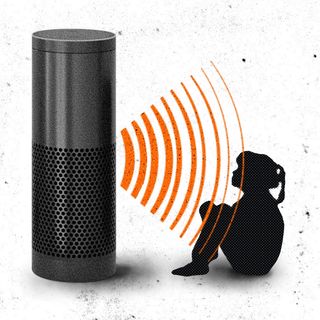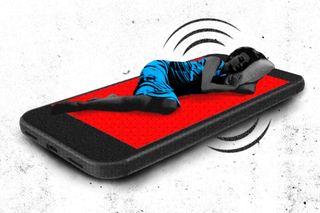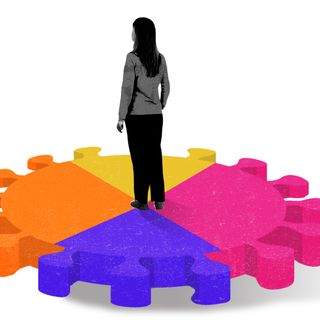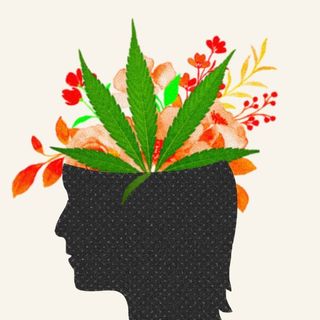
Why Snoozing the Alarm in the Morning Is Injurious to Health
Snoozing can exacerbate both stress and sleep inertia — impacting decision-making, jeopardizing our health and safety.

When we’re jolted out of sleep by our ringing, vibrating phones, their “snooze” function serves as an almost angelic intervention. It allows us to extend our slumber while simultaneously assuring us that it’s there to hold us to our promise of “just five more minutes.” Unlike a roommate, a partner, or even a parent, who gets frustrated by the promise being broken over and over again before giving up on us, a snooze-enabled alarm clock waits patiently. However, its virtues might just be the smokescreen for the chronic damage it’s inflicting upon our health.
Turns out, hitting the snooze button on our alarm clocks every morning is injurious to health. According to experts, when you snooze, it’s not just time and opportunities that you lose. Ironically, in the long run, we lose the very sleep we’re trying to safeguard through the act of snoozing.
Yet, a new study published in Oxford Academic’s Sleep, found that 57% of its 450 participants admitted to being habitual snoozers. In other words, it reflects the possibility of more than half of us actively — or, to be more accurate, sleepily — engaging in a behavior that’s harming us.
Commenting on the evidently widespread practice of snoozing, Ellen Vora, a holistic psychiatrist, says, “Nobody wins. You’re not getting great rest, and you’re also not having a leisurely, relaxed morning.”
“Much of the latter part of our sleep cycle is comprised of the REM [rapid eye movement] cycle of sleep [that] is a restorative sleep state… And so, if you’re hitting the snooze button, then you’re disrupting that REM sleep,” notes Reena Mehra, the director of sleep disorders research at Cleveland Clinic.
Related on The Swaddle:
Is This Normal? “I Can’t Make Myself Go To Bed on Time”
Every time we hit snooze and go back to sleep, we re-enter the REM cycle. When the alarm rings again — within just five to 10 minutes — we’re roused in the middle of the cycle, making us feel foggy and disoriented by the time we’re actually climbing out of bed. As snoozers, many can, perhaps, attest to feeling their groggiest worst each morning — now we know why.
This, in turn, exacerbates sleep inertia, which is the state of “impaired cognitive and sensory-motor performance” that people tend to experience right after waking up. In general, sleep inertia lasts about 15 minutes to an hour upon waking up; waking up right in the middle of the REM cycle, however, can make it last as long as four hours. Given that sleep inertia can impact decision-making, and jeopardize not only our ability to function but our safety, too, deepening or prolonging it is certainly not the smartest trick.
Further, snoozing can also aggravate stress. Speaking to Cosmopolitan, Matt Janes, a neuroscientist, explained, “When your alarm sounds in the morning, you are torn out of restful sleep. This shock quickly engages your sympathetic nervous system, the fight or flight branch of your autonomic nervous system.” Snoozing the alarm again and again “multipl[ies] the assault on your brain and body [since] this [branch] is designed to be engaged only for limited periods.”
Engaging it more often than it’s designed for “compound[s] the negative physiological effects on your body, including the release of cortisol which, when prolonged, can create inflammation on a cellular basis… This can lead to chronic disease, including depression,” Janes warned.
Related on The Swaddle:
How Sleeping Next to Our Partners Can Improve Our Health and Wellbeing
And the more we snooze, the more we’re damaging our health. “Step and repeat this at least five days a week and you begin to understand the multiplicative abuse your heart and nervous system will suffer across a lifespan,” states Matthew Walker, a sleep scientist.
Moreover, continual snoozing can send our bodies into a “confusing tailspin;” before long, our bodies fail to comprehend they’re supposed to wake up and when they must drift off to sleep. The latter can feel like a cursed experience — we’re forced to toss and turn in bed, counting sheep, as sleep continues to evade us.
And sleep deprivation, as we know, makes people more vulnerable to diabetes, obesity, heart attack, and stroke. Not only that, according to a recent study, it also makes our personalities merge with the protagonist of A Christmas Carol — by making us less generous, and probably as a consequence, more lonely. Indirectly, then, all of society stands to lose from snoozing.
However, snoozing is awfully tempting — much like french fries and chicken nuggets. But it appears the allure of this sleep-extending (seemingly) function, too, is also harmful — just like junk food.
Devrupa Rakshit is an Associate Editor at The Swaddle. She is a lawyer by education, a poet by accident, a painter by shaukh, and autistic by birth. You can find her on Instagram @devruparakshit.
Related


Covid19 May Have Made People Shy, Moody, and Less Responsible: Study
